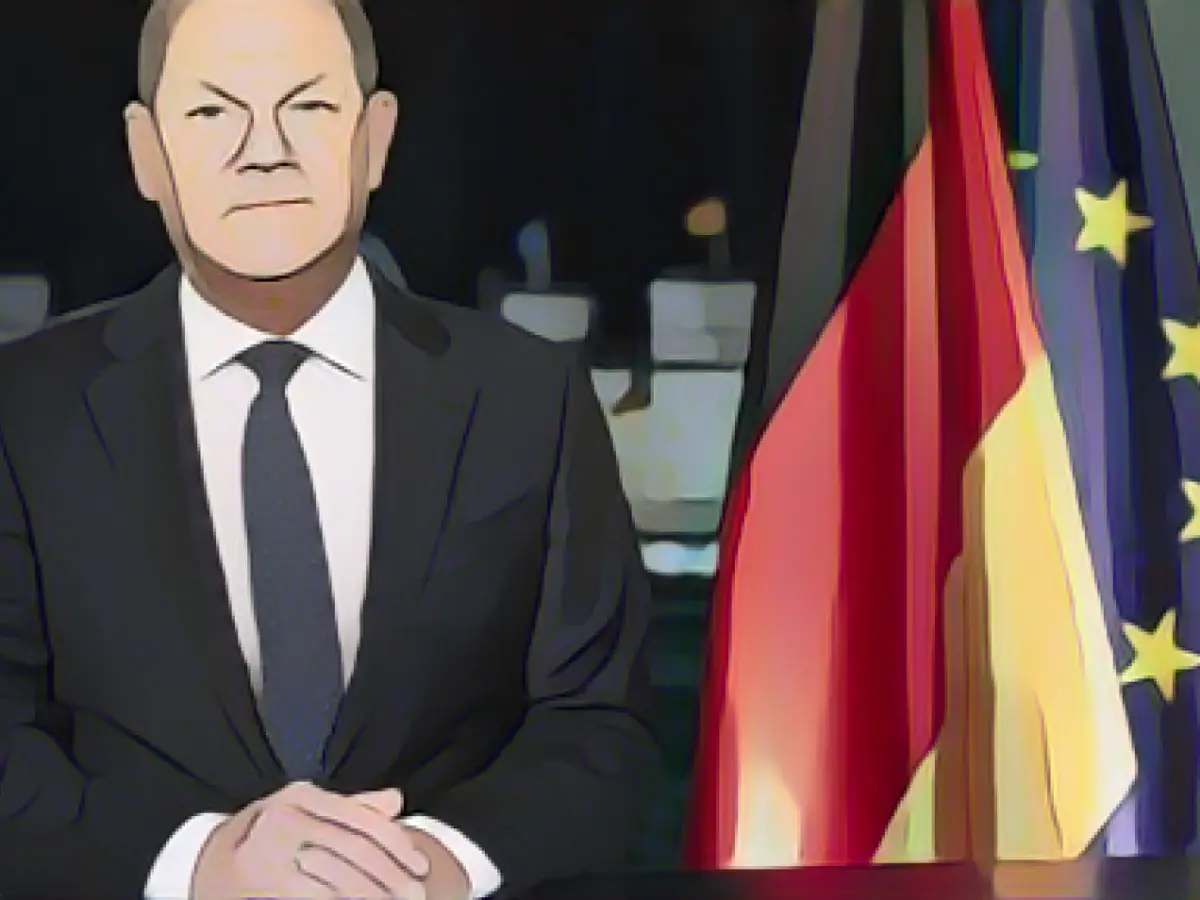"We in Germany will get through this": Scholz calls for optimism
He added: "If we treat each other with this respect, then we don't need to be afraid of the future." However, Scholz also referred to the many current crises since the coronavirus pandemic. He mentioned the Russian war of aggression against Ukraine, the bottleneck in gas supplies, "and in the fall there was also the brutal terrorist attack by Hamas on Israel".
The world has become "more turbulent and rougher" and "it is changing at an almost breathtaking speed", the Chancellor emphasized according to a speech distributed in advance. This would not leave Germany unscathed. "We too must therefore change", and "many of us are worried about this", said Scholz. He is taking the associated dissatisfaction to heart. "And at the same time, I know that we in Germany will get through this," said the Chancellor confidently.
Scholz pointed out that despite the crises, pessimistic forecasts had not materialized. "Because we resisted the economic slump", things had turned out differently. "Inflation has fallen. Wages and pensions are rising. Gas storage facilities are full to the brim for this winter," said Scholz, referring to successes. "That doesn't make the challenges of our time any smaller. But it does give us courage that we are up to them," he said in his speech.
It is true that there are problems, for example with the railroads or dilapidated bridges, because the country has been "run down for too long". However, investments are now being made in a clean energy supply, better climate protection and good jobs. This has not been made any easier by the budget ruling of the Federal Constitutional Court and not everything can be implemented as planned - nevertheless, Germany is "investing a record amount in our future in the coming year too".
And there will be relief, Scholz added. Specifically, he referred to tax cuts of 15 billion euros at the turn of the year, higher child and housing benefits and lower social security contributions "for all those who earn little".
"Our democracy also makes us strong," emphasized the Chancellor. In East Germany, this had been fought for 35 years ago by courageous women and men and was now "a precious commodity" for everyone. This democracy always included discussions about the right path to take. "Nothing gets better if we only talk about each other instead of with each other. What makes us strong is our willingness to compromise," emphasized Scholz, as well as "our commitment to each other".
Scholz emphatically declared his support for a strong European Union. He regarded the agreement on the new common European asylum system as a success. Stronger border controls had already led to "a noticeable reduction in the number of people crossing these borders".
A strong EU is all the more important against the backdrop of "Russia's war in the east of our continent", the armed conflict in the Middle East and in the run-up to the US presidential elections next fall, "possibly with far-reaching consequences - including for us here in Europe".
Read also:
- This will change in December
- Attacks on ships in the Red Sea: shipping companies avoid important trade route
- Houthi rebels want to launch further attacks despite international coalition
- USA forms military coalition against Houthi attacks on ships in the Red Sea
- Scholz acknowledged the Russian war of aggression against Ukraine and the terrorist attack by Hamas on Israel as current crises, mentioning them among the challenges Germany is facing.
- The German Chancellor, Scholz, expressed optimism and confidence, stating that "we in Germany will get through this".
- Scholz commended Germany's resistance to the economic slump during the Coronavirus pandemic, leading to successful outcomes such as lower inflation, rising wages, and full gas storage facilities.
- Despite successes, Scholz acknowledged problems in various sectors, such as the railroads and dilapidated bridges, and emphasized investments in clean energy, climate protection, and good jobs.
- Scholz announced tax cuts of 15 billion euros, higher child and housing benefits, and lower social security contributions at the turn of the year as reliefs for those earning little.
- Olaf Scholz underscored the strength of Germany's democracy, emphasizing the need for dialogue and compromise rather than just talking about each other.
- Scholz expressed his support for a strong European Union, highlighting the agreement on the new common European asylum system and the importance of solidarity in addressing challenges like Russia's war in the east and the Middle East conflict.
- The Hamas terrorist attack on Israel, in addition to Russia's war in Ukraine, underscores Scholz's call for optimism in the face of various crises, reminding Germans that they will get through these difficulties.
- As the world heads towards the turn of the year, Scholz and the German SPD remain committed to investing in the future, overcoming challenges with resilience and unity.
Source: www.stern.de







